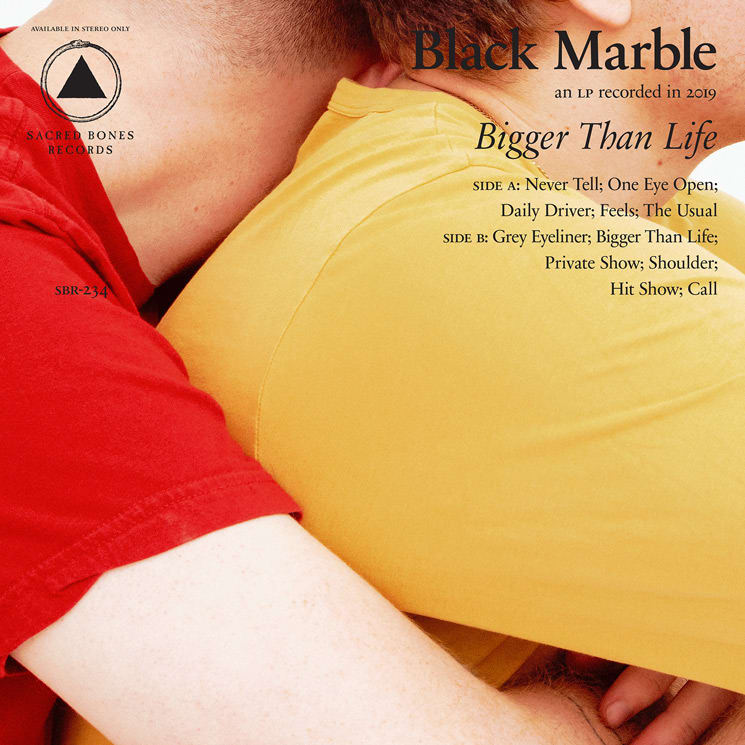Black Marble has officially graduated into his summer goth phase.
After moving from New York City to Los Angeles some time ago, Chris Stewart set out to write a new record, his third, and used his change of scenery to reflect outwardly in his music. Rather than using introspection to create a body of work, Stewart sought to create something representative of his new surroundings, gleaning inspiration from the city's busy transit system and the distinct horizon drawn by the mountains seen from his studio window.
The result is the 11-track Bigger Than Life, a continuation of the vibey synth-pop project, yet a marked change in direction, creatively speaking. While the record still contains the benchmark analogue synth aesthetics that defined his earlier works, Stewart's vocals have taken on a new prominence, and with them, a new attitude and sense of optimism. As such, Bigger Than Life reads as a form of maturation, a desertion of angst. Here, Stewart adapts to his new perspective and actively embraces, to him, an almost foreign subject: fun.
In this sense of youthfulness and Californian rejuvenation, Stewart taps into something familiar, yet fresh. "Private Show" and "Daily Driver," in particular, are steeped in teenage nostalgia, where "One Eye Open" harnesses a newfound danceability not as easily attained by Stewart's dark wave roots. Fans of Black Marble's darker days should pay attention to songs like "Never Tell" and "Shoulder" that blend in brightness, while still emanating a similar bewitched energy that works like It's Immaterial and A Different Arrangement exude.
Black Marble has seen a massive development with Bigger Than Life. Whether the record has proven itself to acutally be "bigger than life" is up for debate. But for Stewart's third LP, it's a solid effort and pleasant change of pace.
(Sacred Bones)After moving from New York City to Los Angeles some time ago, Chris Stewart set out to write a new record, his third, and used his change of scenery to reflect outwardly in his music. Rather than using introspection to create a body of work, Stewart sought to create something representative of his new surroundings, gleaning inspiration from the city's busy transit system and the distinct horizon drawn by the mountains seen from his studio window.
The result is the 11-track Bigger Than Life, a continuation of the vibey synth-pop project, yet a marked change in direction, creatively speaking. While the record still contains the benchmark analogue synth aesthetics that defined his earlier works, Stewart's vocals have taken on a new prominence, and with them, a new attitude and sense of optimism. As such, Bigger Than Life reads as a form of maturation, a desertion of angst. Here, Stewart adapts to his new perspective and actively embraces, to him, an almost foreign subject: fun.
In this sense of youthfulness and Californian rejuvenation, Stewart taps into something familiar, yet fresh. "Private Show" and "Daily Driver," in particular, are steeped in teenage nostalgia, where "One Eye Open" harnesses a newfound danceability not as easily attained by Stewart's dark wave roots. Fans of Black Marble's darker days should pay attention to songs like "Never Tell" and "Shoulder" that blend in brightness, while still emanating a similar bewitched energy that works like It's Immaterial and A Different Arrangement exude.
Black Marble has seen a massive development with Bigger Than Life. Whether the record has proven itself to acutally be "bigger than life" is up for debate. But for Stewart's third LP, it's a solid effort and pleasant change of pace.
